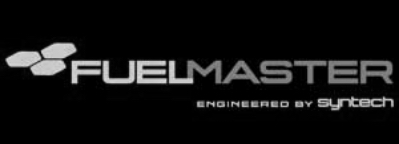When it comes to managing a truck fleet, your focus is firmly on achieving peak efficiency and cost-effectiveness. A pivotal element in this landscape is Diesel Exhaust Fluid (DEF), a critical component for modern diesel engines. However, the challenge lies in balancing the costs associated with DEF while ensuring operational efficiency remains high. This comprehensive guide will help you dive deeper into understanding and optimizing DEF management for your truck fleet.
Understanding Diesel Exhaust Fluid
Composition and Role
DEF, primarily composed of water and urea, is more than just a fluid; it’s a key player in reducing harmful emissions from diesel engines. This solution breaks down noxious nitrogen oxides in exhaust gas into harmless nitrogen and water vapor, crucial for meeting environmental regulations.
Cost Drivers
Understanding the cost dynamics of DEF is vital. Contrary to common perception, the primary cost driver for DEF is not the fluid itself but the logistics involved in its transportation. Given that water constitutes the majority of its composition, the transportation and handling of DEF become significant factors in its overall cost.
The Cost of DEF: Breaking Down the Expenses
Logistics Over Fluid
When assessing the total cost of DEF, it’s important to look beyond the price of the fluid. The logistics, encompassing delivery and service fees, play a substantial role in the total expense but often go unnoticed.
Hidden Costs
The hidden costs in DEF management can be substantial. These include storage, handling, spillage, and inventory management costs, all of which can accumulate to impact the bottom line significantly.
On-Site DEF Storage: A Cost-Effective Solution
Eliminating Transportation Costs
Storing DEF on-site is a strategic decision. It not only eliminates recurring transportation costs but also reduces the time and resources spent managing deliveries. This approach is not just about saving money; it’s also about contributing to a more sustainable and efficient operation.
Environmental Benefits
On-site storage also has environmental advantages. By reducing the frequency of deliveries, businesses can lower their carbon footprint, aligning with broader environmental goals and potentially qualifying for green incentives.
Balancing Storage Size and Cost
Economic Scale
The balance between the size of your storage facility and its cost is a crucial consideration. While larger facilities might appear costly upfront, they can provide long-term savings by lowering the per-gallon cost of DEF due to economies of scale.
Break-even Analysis
A detailed break-even analysis can help businesses determine the optimal storage size. This analysis should consider factors such as the frequency of DEF usage, expected growth in fleet size, and storage maintenance costs.
State-of-the-Art Storage Facilities
Technology Integration
Modern DEF storage facilities are more than just tanks; they are integrated systems equipped with the latest technology. Features like automated level monitoring, temperature control, and spill containment systems ensure that DEF is stored safely and efficiently.
Cost Efficiency
By utilizing these advanced storage solutions, businesses can significantly reduce their cost ratios. The ease of access and management that these facilities provide translates into smoother business operations and reduced downtime.
Streamlining DEF Management with Diversified
Tailored Solutions
Diversified’s role in optimizing DEF management is crucial. Our expertise in tailoring DEF storage solutions and leveraging a network of local providers ensures that businesses receive the most cost-effective and efficient system for their specific needs.
Continuous Improvement
We focus on continuous improvement and adaptation, ensuring that our solutions evolve with changing industry trends and customer requirements.
Partner with Diversified
To truly revolutionize your DEF management and achieve substantial cost savings, consider a partnership with Diversified. Our bespoke solutions and deep understanding of DEF logistics are designed to transform the way your business handles DEF.
Partnering with us means not just immediate savings but also long-term operational efficiency and environmental responsibility.
Managing Diesel Exhaust Fluid effectively goes beyond operational necessity; it’s a strategic decision with far-reaching implications for cost savings and environmental stewardship. With a detailed, thoughtful approach and the right partnership, businesses can elevate DEF management from a routine task to a strategic advantage, reaping benefits today and into the future.








